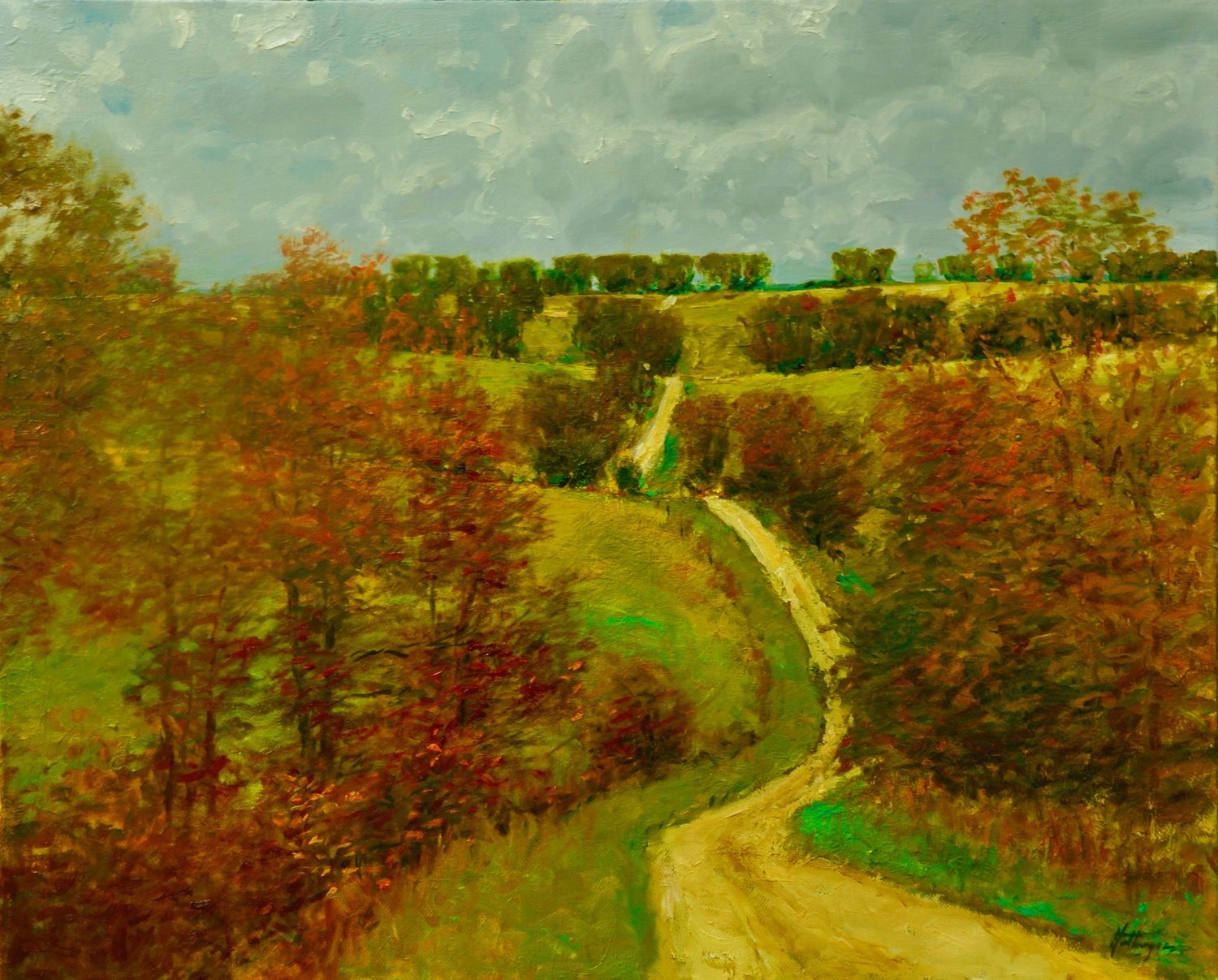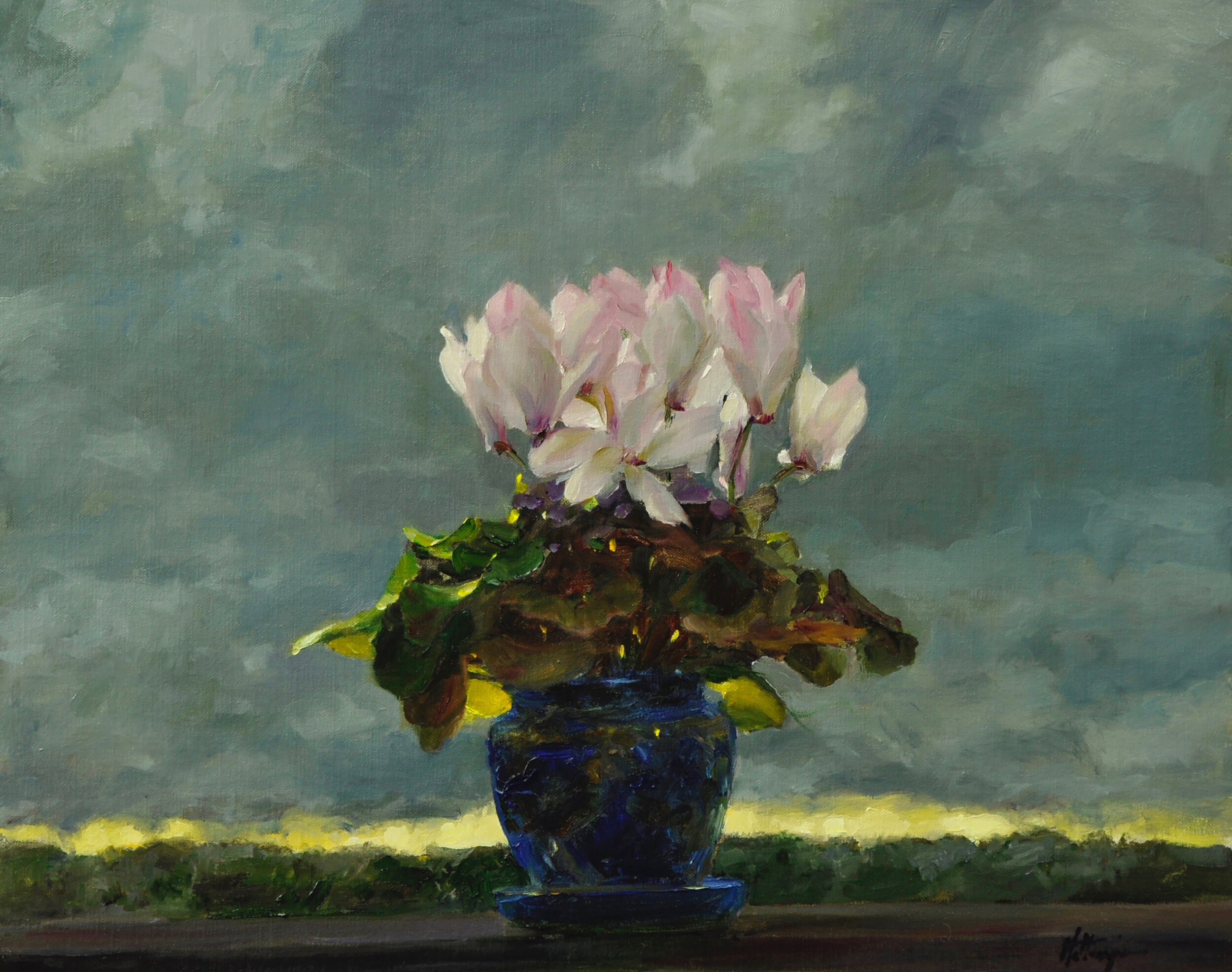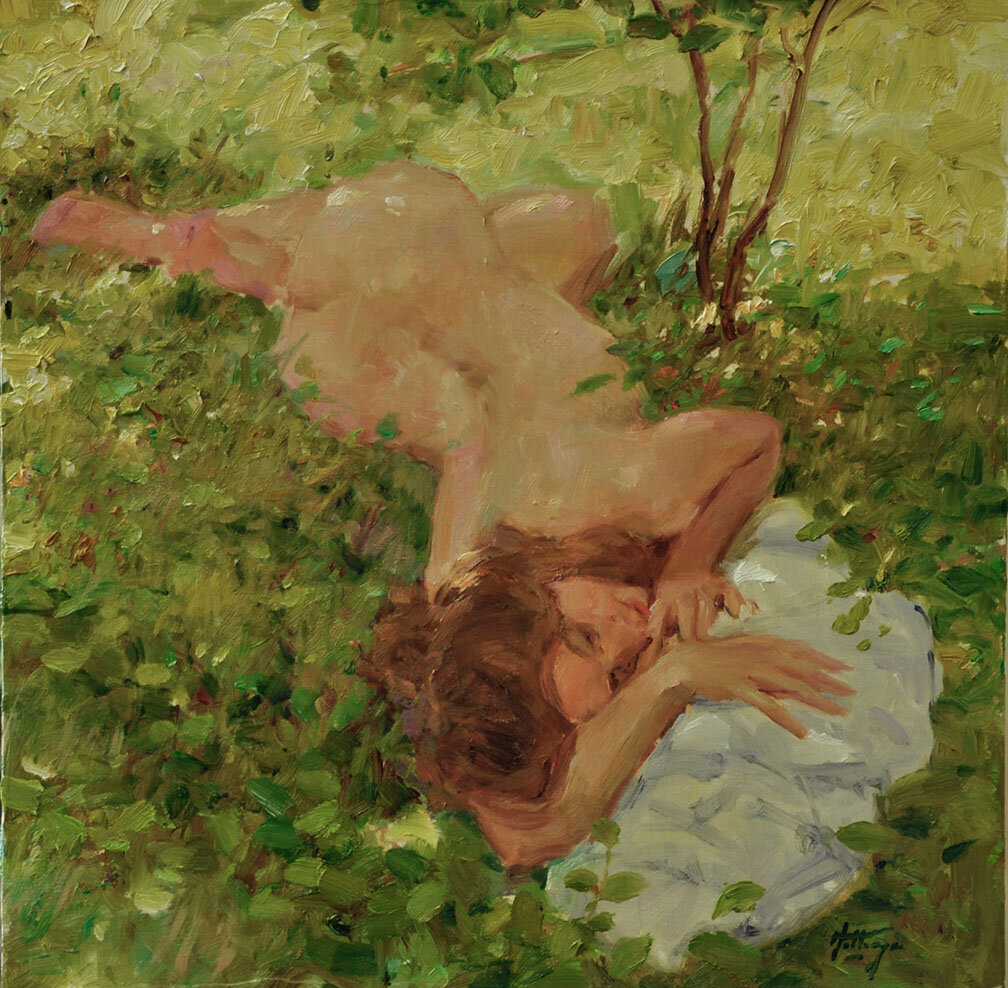Trying to capture the tear forming in the one eye across from me, I’m hearing about treating soldiers from the front. An interesting face in a Kentucky cafe, holding ninety years of life, is my subject. Getting up the courage, I ask if she minds if I draw her. With a gentle smile and a frail hand she invites me to her table.
At first she is doing all the talking, "I've never met an artist before". She introduces herself, and then me to everyone in the place. I find myself in an open conversation about artists and what kind I might be. As I begin to draw she tells me about her farm and coming to Jane's every morning for coffee. Jane smiles from behind the counter, it's her cafe we're in. It's one of those small out of the way places that has two gas pumps out front that antique dealers are always wanting to buy. No gas, but great sandwiches and gossip.
Emma is her name, and “that's John who has just come in, he fixes things,” she says. At first it's a steady stream of small talk. As I draw her she begins telling me more about herself and her younger days, when she had less wrinkles. She said she was a real beauty, that the soldiers alway wanted her to care for them. A nurse during the Great War. At twenty, my subject treated soldiers blinded by the gas in the trenches of the so-called Great War. An image of the blind man who walked by our house daily, back when I was busy with my cap guns and toy cowboys came to me as I listened. Out-of-ear-shot, Mom told about those men who were injured in that war. Now, twenty years later, I am sitting across from a lady who was there.
She tells me what it was like seeing what wars do. Old men send young men out to war, and then, turning into old men themselves, they send the next generation out to be killed. Nodding in agreement, I add the sadness that replaces the soft smile in my sketch. A gentleman sits down with us commenting on my drawing of Emma and saying she still is a pretty good looking nurse. Turning to a fresh page I begin a new sketch of my new friend who continues on with Emma's story. Besides being a nurse in the Great War she was a suffragette and still gets all the women out there to vote. The more I learned about her the more meaning my drawing takes on for me. There was a tear forming in her one eye. Only after she left did my new friend tell me Emma had lost two sons in the Second World War.
Every now and then I think about sitting in that Kentucky cafe and listening to total strangers become part of who I am, what I do. How fortunate I am to be an artist, even if it is only to myself. Today, at 76, I have a memory of a landscape I lived coming to life again on the easel. It is being painted today, but I lived it with my friend Paul some forty years ago. Closing my eyes I see the landscape and Emma. Tomorrow I may see the landscape, and my brother Francis, as I paint.



